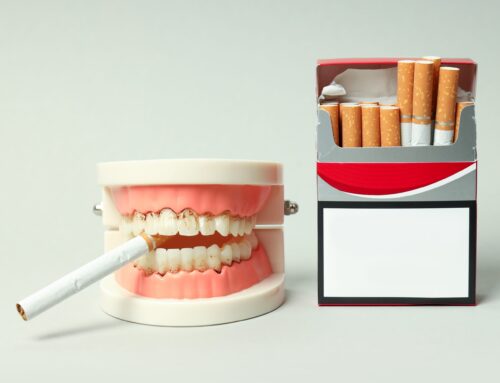Are you afraid to lean in too close when talking to someone because of bad breath? Do you find yourself popping mints like candy in hopes of masking that embarrassing odor?
Don’t worry, you’re not alone. Bad breath affects millions of people, and it’s not just limited to morning breath. It can be an embarrassing and unpleasant problem for anyone. It is a common condition that affects a significant percentage of the population, and it can have various causes.
What are the causes?
- One of the most common reasons is poor oral hygiene. When food particles and bacteria are not properly cleaned from the mouth, they can cause an unpleasant odor.
- Another cause is dry mouth. Saliva plays a critical role in cleaning the mouth and keeping it moist. When there is insufficient saliva production, it can result in a dry mouth, which can lead to bad breath.
- Smoking and tobacco use. Smoking can cause a dry mouth and reduce the flow of saliva, which can lead to bad breath. Tobacco products can also leave an unpleasant odor in the mouth and on the breath.
- Certain foods and drinks. Strong-smelling foods like garlic and onions can leave a lasting odor in the mouth, while sugary and acidic drinks can promote the growth of bacteria that cause bad breath.
- Underlying medical conditions such as sinus infections, respiratory infections, and digestive issues can all contribute to bad breath. A more serious ailment, such as diabetes, liver disease, or kidney disease, might also be the underlying cause.
- Poor dental health and untreated dental problems like gum disease and tooth decay. These conditions can lead to the accumulation of bacteria in the mouth, leading to bad breath.
Tips to prevent bad breath
The following preventive measures can help reduce the risk of bad breath and maintain good oral hygiene. Here are some preventive measures:
- Brush your teeth with fluoride toothpaste twice a day to eliminate food particles and plaque.
- Floss at least once a day to remove food particles and plaque from between your teeth and under your gum line.
- Use a tongue scraper or brush to clean your tongue, as it can harbor bacteria.
- Drink plenty of water: Drinking water helps keep your mouth moist, which prevents dry mouth. You can also use XyliMelts to relieve persistent dry mouth.
- Avoid foods like garlic and onions that produce foul breath. Avoid them or consume them in moderation.
- Quit smoking. You can consult a doctor for free to help you quit smoking.
- Chewing sugar-free gum stimulates saliva production, which helps wash away food particles and bacteria.
- Visit your dentist regularly. Frequent dental examinations and cleanings can aid in the detection and treatment of dental disorders. Make an appointment







Leave A Comment